NATO is a Modern, Dynamic and Flexible Organization
Szöveg: Ádám Draveczki-Ury | 2011. november 12. 6:04The cyber defence strategy, which forms the basis for Hungary’s core capabilities in this field, is currently in preparation, Defence Minister Dr. Csaba Hende said at the NATO conference organized by the Foreign Affairs Office of the Parliament on November 3.
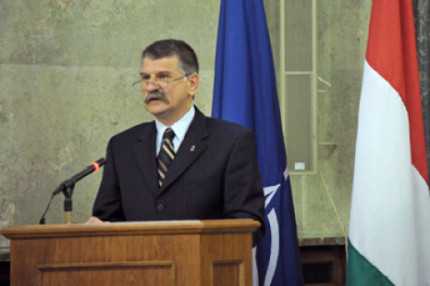
The host of the event, Dr. László Kövér, the Speaker of the House welcomed the participants at the meeting. He gave a short summary of the preliminaries to Hungary’s accession to NATO, pointing to the importance of the accession because NATO offers a venue for sincere dialogue and every partnering nation contributes to achieving the common goals.
Foreign Minister János Martonyi talked about recent developments in Libya, saying that the first trial of strength for the renewed Alliance occurred sooner than expected and suddenly, but NATO has passed the test with flying colors. The Foreign Minister also mentioned the most significant challenges to security, adding that “there is no such thing as a free lunch" in the Alliance, as every member state has to contribute his share to the commitments.
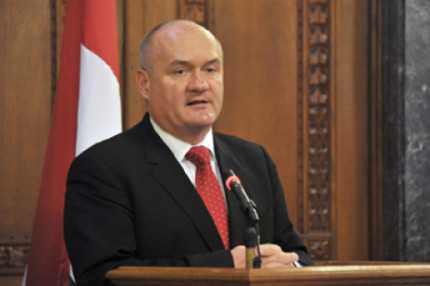
The topic of capability development is a priority. “Hungary focuses on finding cost-effective solutions in this field", the Minister said and, by way of example, went on referring to the arrival of the donated Finnish helicopters, the US contribution, which is an equipment package for capability development, for the outstanding role of the HDF on missions abroad, and the establishment of the system of volunteer reserve, to which Finland provided significant contributions as well. Speaking about the results Csaba Hende noted that the issue of the third 3D radar station has eventually been settled.
“The full Euro-Atlantic integration of the countries in the neighboring Western Balkan region in the shortest term is in Hungary’s fundamental security interest", the Minister said, adding that the Transatlantic community should support these countries on the road to integration. He also touched on the ongoing cooperation with Russia. Dr. Csaba Hende concluded his speech by saying that at last year’s Lisbon Summit it was made clear that NATO is a modern, dynamic and flexible organization whose members agree on fundamental issues. “During the one year that has passed since the Lisbon Summit, however, it has become evident that the Alliance must face serious difficulties due to the significantly reduced budgets. All member states, including Hungary must do their best to make sure that the cohesion of the Alliance remains undamaged in these difficult times lying ahead of us and that NATO continues to be able to perform the required tasks in maintaining our security", the Defence Minister said.
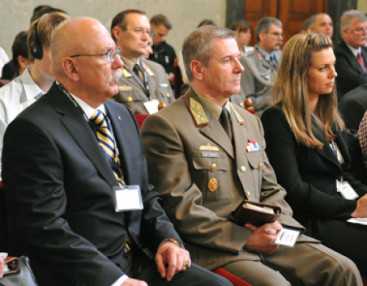 | 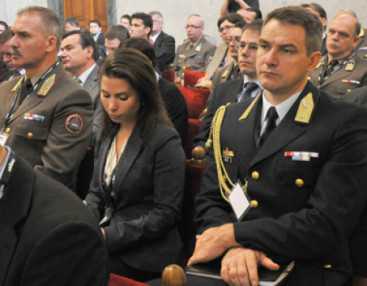 |
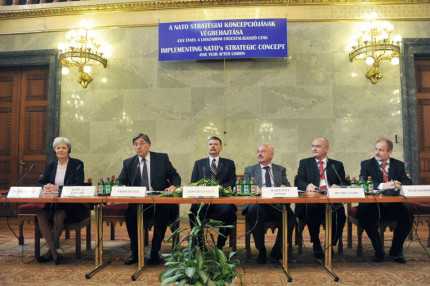
Photo: Mária Krasznai-Nehrebeczky